Sansa and Jon Differ on How to Unite the North
Plus: Why was Dragonstone left empty? And what’s Euron’s “priceless gift”?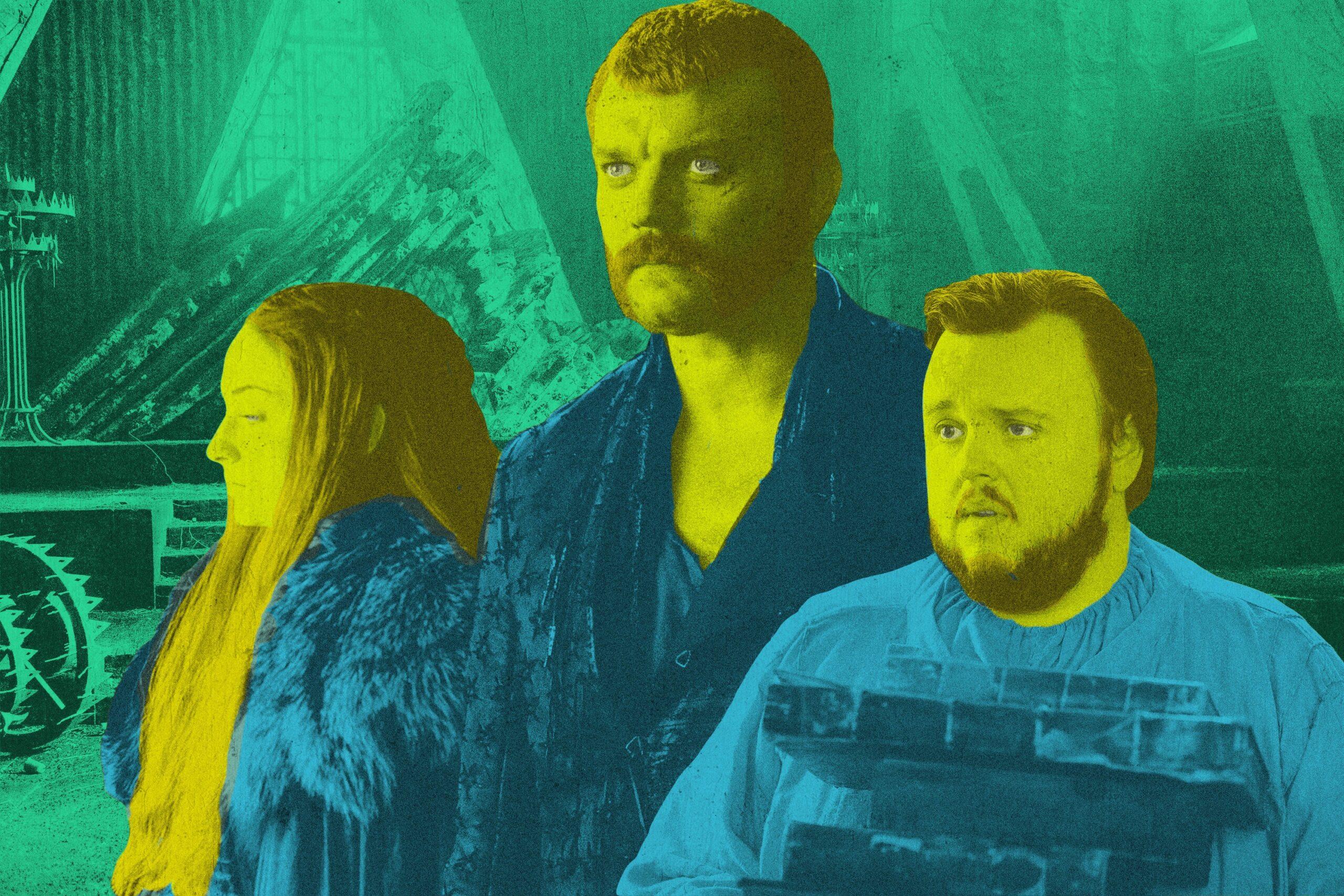
For six seasons and roughly as many fictional years, Westeros has been at war. In that time noble houses, with histories stretching back thousands of years, crumbled into dust, kings fell and queens rose, and the twin pillars — the faith and the crown — that held up this world gave way. Sons murdered their fathers. Princes were mutilated. A daughter became an avenging assassin. A naive girl became a true player in the great game. And a bastard was proclaimed king. After 10 years, two turns, and 16 days, the longest summer in living memory is over. Winter has come. Westeros is not prepared to meet it.
BUT WE’RE PREPARED FOR SEASON 7 OF GAME OF THRONES! And I’m sooooooo psyched to be here once again to help you be more prepared. Here are some answers to questions you had about the season premiere, "Dragonstone."
Miriam asks, "Is Sansa right about punishing the Karstarks and the Umbers?"
Jon and Sansa both have valid points that they’re pursuing in the wrong ways.
Jon is right that a unified North is needed to face the White Walker threat. And executing Alys Karstark and Ned Umber, both children, is simply not in Jon’s nature. (Well, not counting Olly … that was different.) That’s a credit to him and that’s why he’s the hero. But letting them off scot-free sends the wrong message. We’ll set aside the Karstarks (who rose when Robb Stark was forced to execute Lord Rickon Karstark) for now, but the Umbers need to pay a price. Rickon Stark came to Last Hearth in dire straights, seeking shelter. And in violation of their oaths and the sacred rights of guests, the Umbers sold him to the Boltons and beheaded his direwolf (the direwolf being the sigil of House Stark). True, the Smalljon died on the battlefield. But there’s no shortage of options at Jon’s disposal for dealing with the Umbers.
He could:
- Take Ned Umber (or another family member) as a hostage and arrange for him to marry a loyal supporter when he comes of age. Is it wise to allow Last Hearth, a frontline castle in the coming war, to be under the control of a child not named Lyanna Mormont? Probably not.
- Break off some of the Umber lands to reward the people who were with House Stark from the jump, when the Battle of the Bastards looked like a loss in the making. Lyanna Mormont pledged every fighting man she had to the cause. As did the Mazins and the Hornwoods. The Free Folk came even though, as Jon said to Dim Dalba, it wasn’t "the deal we made." Those people risked everything to answer the call when Jon needed them most. Their loyalty and sacrifice should be acknowledged.
Sansa’s position is fair, particularly the part about other enemies. (Recall Jon’s "we have so many enemies now" line from last season.) When Robb marched south, he neglected the coastal defenses and the Ironborn took advantage. Now there’s a massive Iron Fleet just waiting for the moment to strike. Jon’s looking north, and he should, but he needs to pay attention to the other directions as well. And Sansa’s argument comes after her important and largely ignored contributions to the North’s defense. When she and Jon reunite in Season 6, after his resurrection, he expresses no interest in fighting for Winterfell or even fighting at all. "I fought and I lost," he says. He was just going to, I don’t know, walk the earth, I guess. This with the Boltons and the Lannisters and the Freys looking to separate his — and Ghost’s (sorry, Mal) — head from his shoulders. It took Sansa’s impassioned harangue ("Winterfell is our home. It’s ours. And Arya’s and Bran’s and Rickon’s") to move him to defend the North. And now he’s like "Why should I listen to you?" Would he say that to Davos if the Onion Knight had given him the same advice? I suspect no. That must be maddening for Sansa. Little wonder she’s keeping Littlefinger in play.
Of course, Sansa should not have contradicted Jon in court and in front of the lords and ladies of the North, the Knights of the Vale, and the Free Folk. Which leads to the core issue: poor management.
Clearly Jon needs a small council, and that small council needs to have regular meetings. Issues such as these should be debated behind the scenes, not aired in public. To be fair, Jon’s new at this. But as king, he’s accountable for the way his kingdom is run.
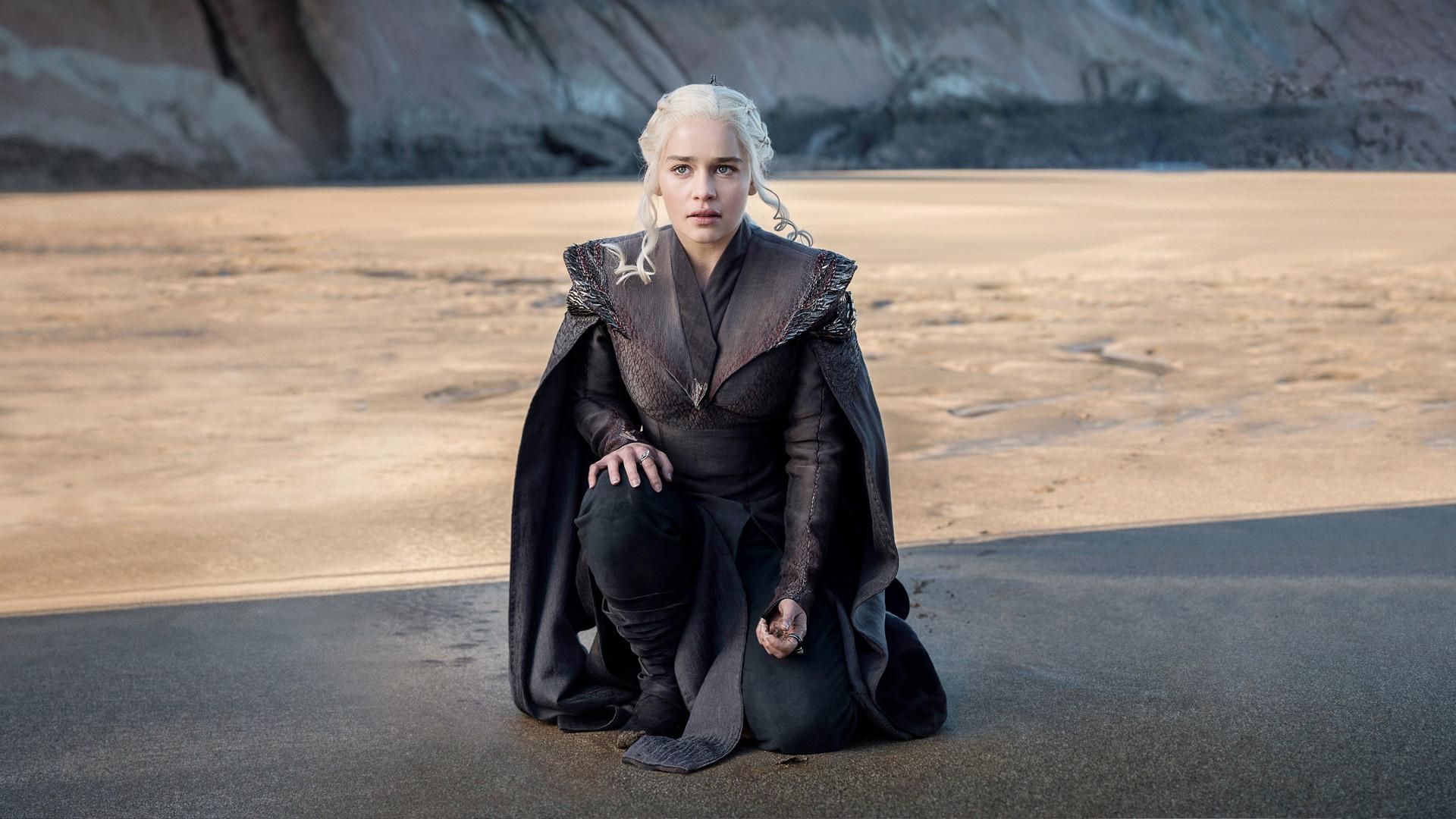
Jon asks, "How was Dragonstone so wide open? How has it been vacant and for how long?"
Jaime, in the course of explaining why Daenerys will make landfall at Dragonstone, mentions that Stannis left the castle unoccupied. That doesn’t seem like a Stannis move, but it’s plausible. Whatever the case, King Stannis couldn’t have afforded to leave a significant number of soldiers behind.
After the debacle at the Battle of the Blackwater, Stanny Sr.’s claim to the Iron Throne was in tatters. To press his rights he would need men, and ships to ferry those men to their goal. So desperate was King Stannis that, against his core instincts, he agreed to contract sellswords and a pirate fleet (shouts to Salladhor Saan, arguably the most hygenic sex-haver in series history, handling his business in a hot tub) after Davos and Melisandre convinced him to sail north. Staffing up Dragonstone with mercenaries was obviously not an option; they’d just turn around and sell it to his enemies as soon as he left. And I could imagine a scenario in which Stannis would want as many loyal bodies around him as possible, whether those belonged to cooks or maids or whoever.
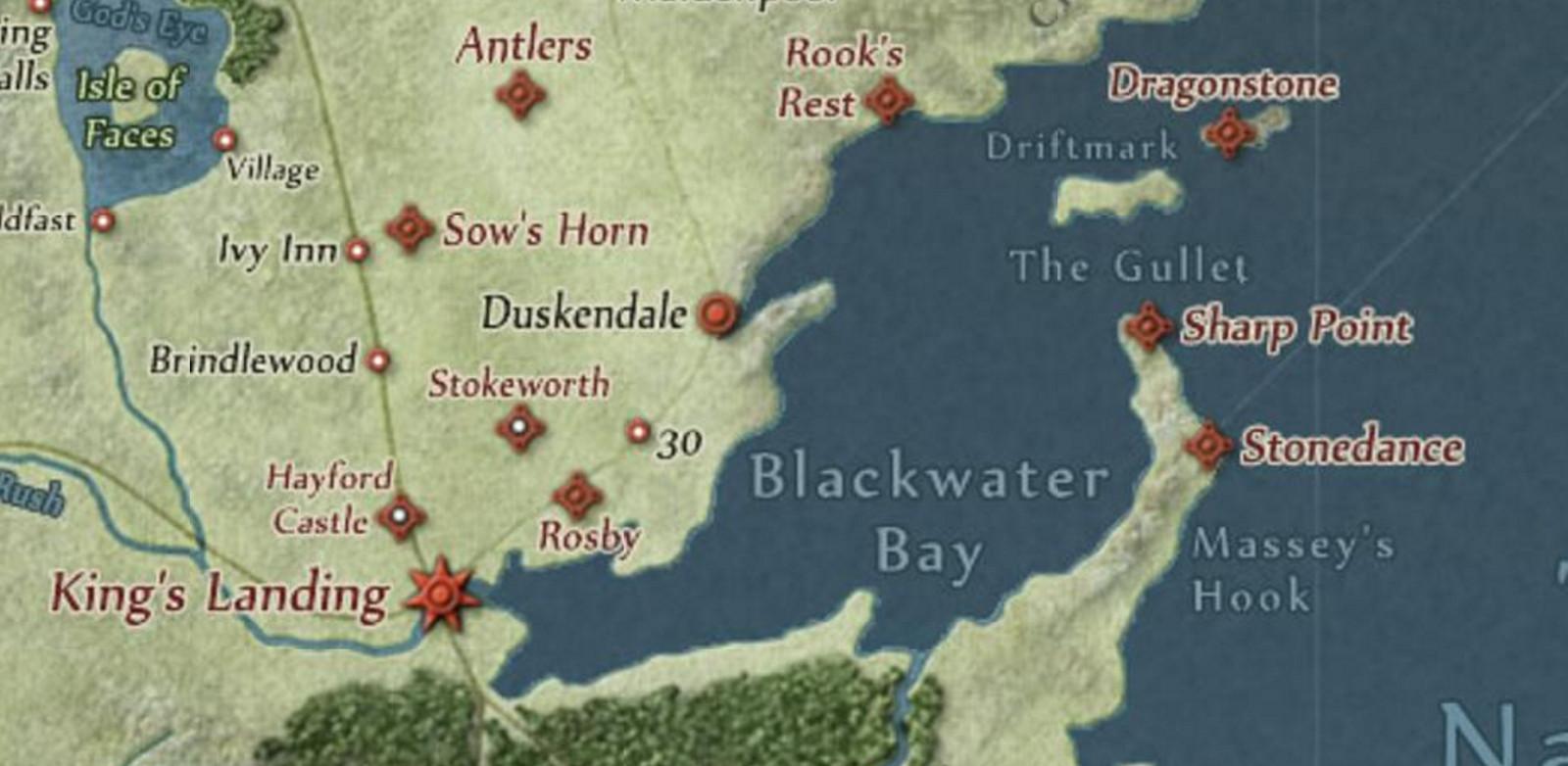
That said, considering Dragonstone’s strategic and symbolic importance (during the Targaryen years, Dragonstone was traditionally bestowed on the king’s heir), I think it’s more likely that Stannis left a skeleton force. After all, during his brother Robert’s Rebellion, he held the Baratheon family seat Storm’s End with only a handful of men against nearly a year-long siege. It was a close-run thing, sure. The future king Stanny ate rats. And when a group of his knights attempted to surrender, he held onto them rather than execute them just in case he had to eat dudes. He would not give up Dragonstone cheaply.
BUT! News of Stanny Sr.’s actually quite timely demise in the snow-covered woods outside Winterfell would have changed everything for the theoretical defenders of Dragonstone. Freed from their oaths, these men would have no reason to fight and every reason to make for the hills. Particularly once the billowing sails of Dany’s grand flotilla and the silhouettes of her dragons appeared on the horizon. Why stick around to see what would have happened next?
As for why the Lannisters didn’t knock off Dragonstone when they had the chance: taking the castle was never high on the list of priorities. After the Blackwater, Stannis was a spent force. Robb Stark’s army was still rampaging across the Westerlands and the Riverlands. There was Joffrey’s royal marriage to look to. Then, later, Tommen’s royal marriage to look to. And, of course, the Ironborn had also rebelled. The Lannisters have a fleet based out of Lannisport on the opposite side of the continent from Dragonstone. Sending a force to take the island would have left Lannisport and Casterly Rock open to Ironborn raids. The Reach has a robust navy, mostly the fleet of Paxter Redwyne of the Arbor, but the window for when Lady Olenna would’ve been amenable to using the Reach’s navy to do the Lannisters’ dirty work was minuscule, if it ever existed. Dragonstone was no threat and could be picked off at will, true. But sending ships to storm it would have meant taking those ships from somewhere else.
Livia asks, "What was the Westerosi attitude toward the pre-invasion Targaryens at Dragonstone? Were the noble houses already worried and hostile?"
Great question!
After first subduing the Ghiscari Empire in what became Slaver’s Bay, then conquering the city-states along the banks of the Rhoyne river (spurring the Rhoynar diaspora, which gives Dorne its cultural spice), the Valyrian Freehold spent a few centuries catching its breath before truly turning its sights west of Essos. Two centuries before the Doom, the cataclysm that reduced the Valyrian Freehold to boiling, cursed ruins, the dragonlords annexed Dragonstone, a dreary, volcanic island in the narrow sea at the mouth of Blackwater Bay, and raised the castle of the same name. The petty-lords of the narrow sea put up some token resistance then promptly, and wisely, rolled over. The fractious kings of Westeros, meanwhile, were too focused on continental affairs to raise a ruckus.
Westerosi apathy to the presence, just a few leagues offshore, of such an obvious threat seems strange. The houses of the Seven Kingdoms would have known a lot about Valyrians. Four hundred years earlier, Princess Nymeria and the Rhoynish refugees arrived in Dorne after the dragonlords burned their cities and dragged their people off in chains. By the time the Valyrians arrived on Dragonstone, the Andals had been the dominant culture in southern Westeros for thousands of years after taking the continent from the First Men in wave after wave of seaborne invasion from Essos. The southern kingdoms must have understood the implications of the annexation of Dragonstone. The lords of Westeros would have seen the winged beasts, scales glittering against the sun, gliding high above the narrow sea, and heard tell of the huge castle, raised by magic, in the shadow of the island’s volcano. Why didn’t they try to do anything about it? We don’t entirely know. One part of the answer, though, is greed. The Valyrians, after all, had really cool shit.
The Valyrians harnessed magic and technology to create wonders like the fabled Valyrian steel. The noble families of Westeros could not get enough of the stuff, price be damned, and Dragonstone became a focal point for trade in Valyrian steel.
The Valyrian Freehold had been administering Dragonstone for nearly two centuries when Aenar Targaryen, spurred by his daughter Daenys’s premonition, pulled up his stakes in Valyria and made Dragonstone the seat for House Targaryen. They brought all their wealth and possessions and their five dragons. They were the only dragonriders of any consequence to survive the Doom. One hundred and twelve years later, Aegon invaded Westeros.
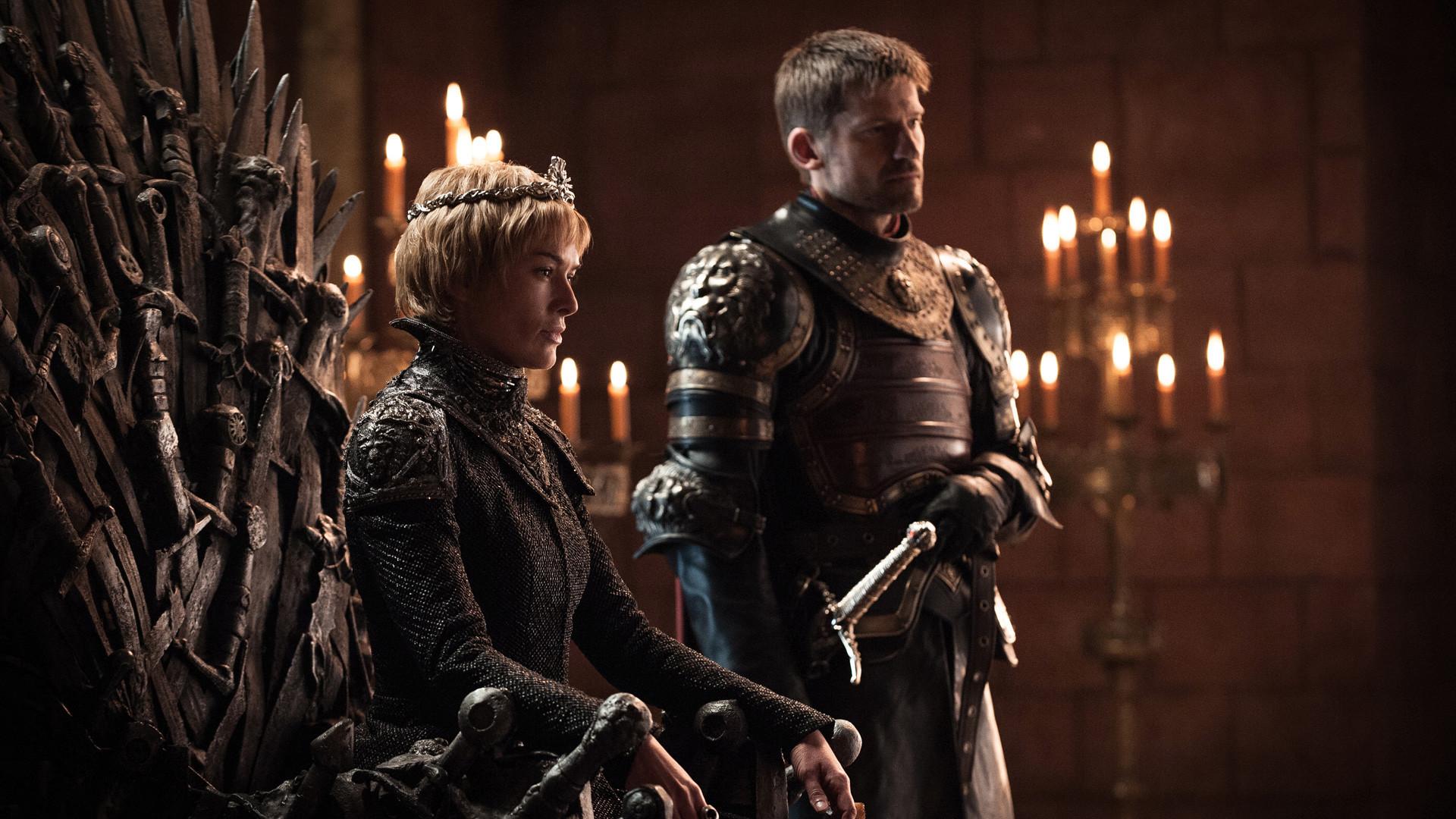
Sean asks, "What are the 14 seas that Euron said he conquered when he was talking to Cersei and Jaime in the throne room?"
There are 15 bodies of water categorized as "seas" in the known world.
Moving clockwise from the top of the map: the Shivering Sea, the Bleeding Sea (really a huge lake), the Shrinking Sea (a lake that dried up and is now a collection of smaller lakes), the Hidden Sea (home to the legendary Winged Men), the Jade Sea, the Poison Sea (another lake, this one salt water), the Silver Sea (lakes again), the Summer Sea, the Smoking Sea (body of water covering the ruins of Valyria), the Sea of Sighs, the Smiling Sea, the Sea of Myrth, the narrow sea, the Sea of Dorne, and the Sunset Sea.
I assume that the sea Euron missed is one of the steadily drying-up inland lakes of eastern Essos. Or maybe he didn’t mention the narrow sea because it’s such a basic body of water.
Lots of people asked, "What is the ‘priceless gift’ that Euron promised Cersei?"
Mal and I both lean heavily toward this being a reference to the dragonbinder horn from the books. In A Feast for Crows, Euron wins the kingsmoot, in part, by having one of his men blow the horn (the man soon died, and his lungs were found to be charred), which Euron claims to have found in the ruins of Valyria, as a demonstration of his prowess as a captain.
The horn is 6 feet long, warm to the touch, and banded with Valyrian steel adorned with glyphs. When blown, the glyphs glow and the horn produces a tremendous sound. Supposedly, the horn can be used to bind a dragon to a person’s will. A useful tool in the wars to come.
Riley asks, "Has the Citadel grown complacent?"
Well, it’s been thousands of years since the Long Night. We’re not sure what happened thousands of years ago in our world and we have computers and shit. It’s understandable that, in the absence of magic and with the disappearance of giants and the children of the forest, the maesters would come to think of such things as legends.
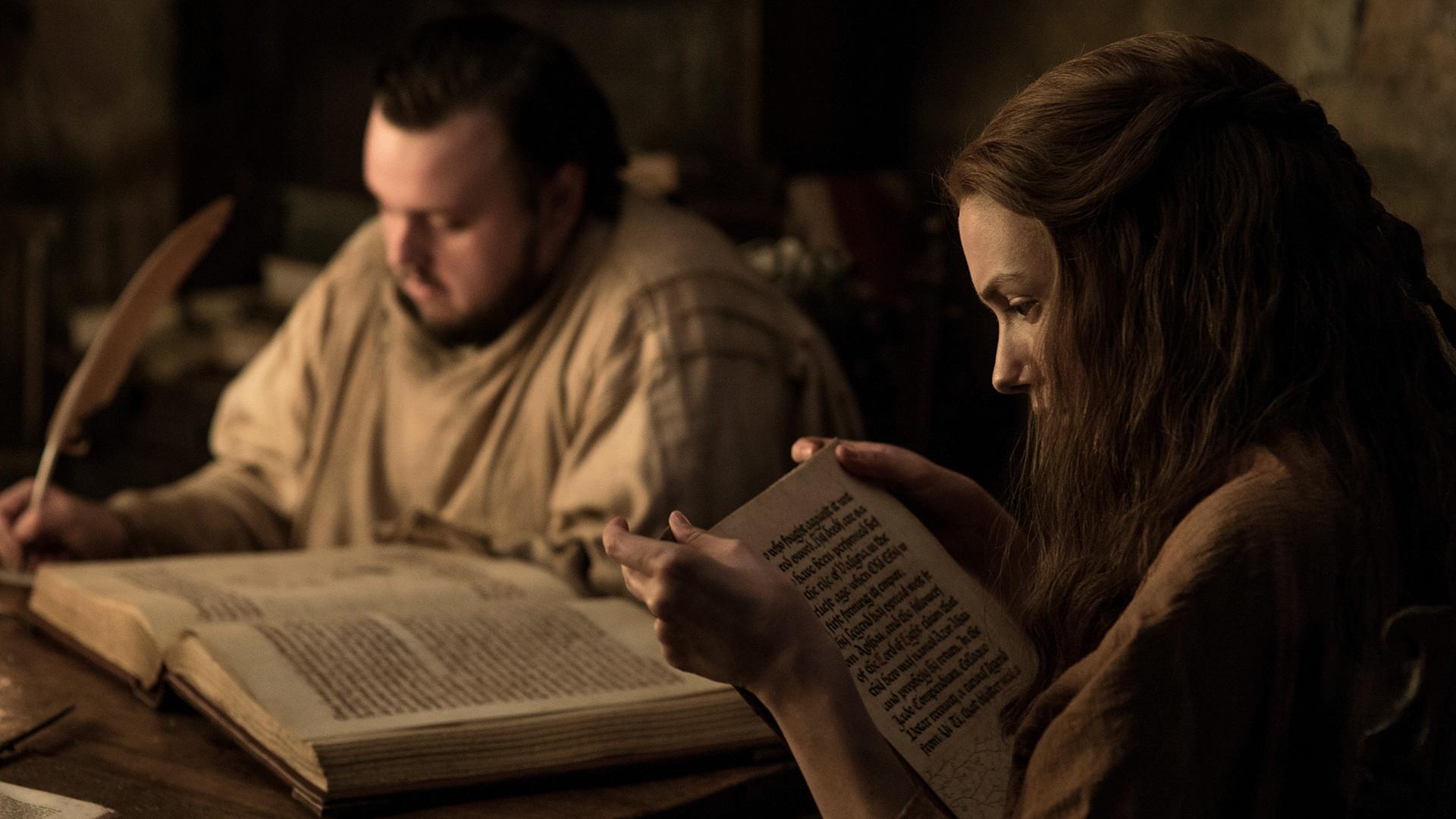
Nick asks, "Can Sam get greyscale by touching Jorah’s bowl?"
I wouldn’t touch it.
Marko asks, "How was Wun Wun walking with the White Walker army in Bran’s vision?"
It’s not him. Over the course of the centuries, any number of non–Wun Wun giants could have fallen to the White Walkers and been raised as wights.
Anmol asks, "Since the Lannisters have no allies, Dany basically only needs to take over King’s Landing to become queen, right?"
Taking the capital is obviously a crucial step for Dany. All the symbols of power are there: the Red Keep, the Iron Throne, the Great Sept of Bae — OK, not that one. Whatever … once she takes the capital, she can be crowned at Oldtown’s Starry Sept, same as Aegon the Conqueror was three centuries earlier.
But even after being crowned, I imagine there would still be significant work to do. The North is in full-on rebellion, and doesn’t seem likely to kneel easily, what with the events of the last few years. The White Walker threat looms. The future of the Stormlands is an unknown. Until Cersei, the Iron Throne has never been sat on by a woman, and Westeros, in fact, fought wars to not be ruled by a woman. Much like Dany’s sojourn in Meereen, the conquering could be the easiest part. Governing Westeros will be another challenge.
Thanks, and see you next week!
Disclosure: HBO is an initial investor in The Ringer.
Due to a production error, an earlier version of this piece included duplicate lines in one section.